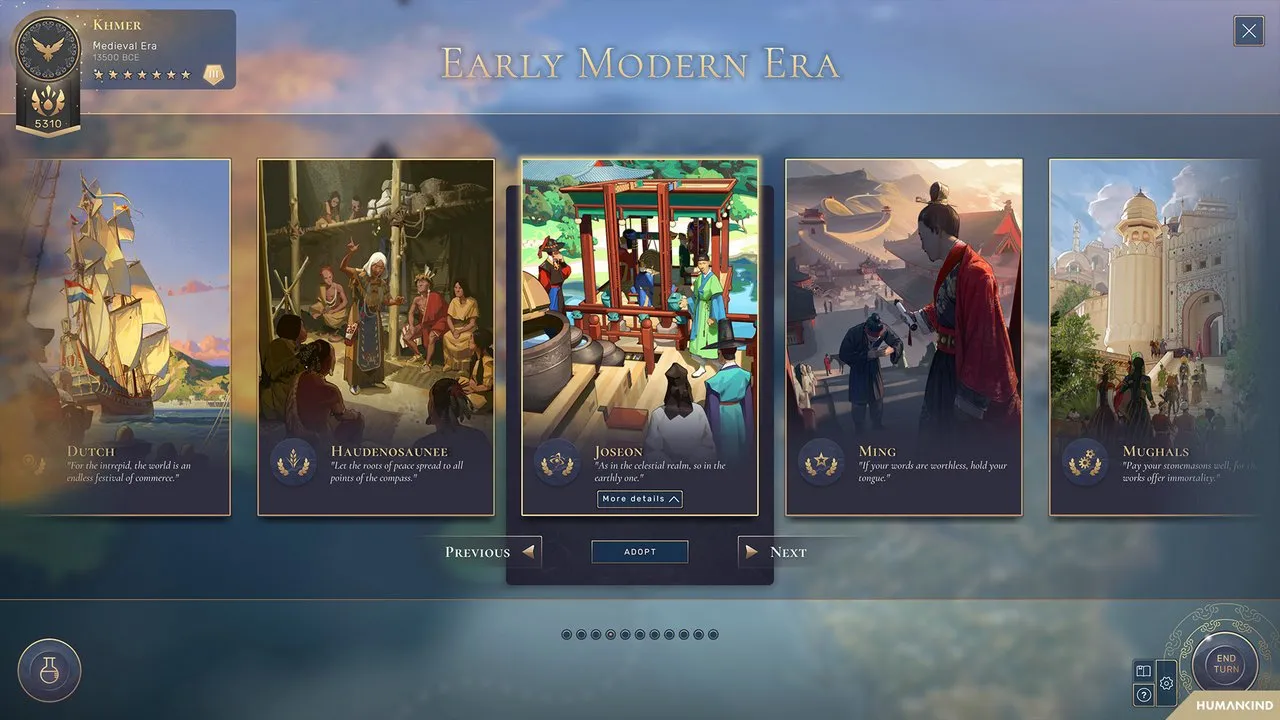
Humankind Game Review: A Deep Dive into Amplitude Studios’ Historical 4X Strategy
The 4X strategy genre is often synonymous with Sid Meier’s Civilization series. However, Amplitude Studios, the creators of Endless Space and Endless Dungeon, have carved their own niche in this space. Humankind is their ambitious foray into historical 4X, a genre dominated by Civilization. Does Humankind succeed in breaking new ground and stepping out of the shadow of its successful Endless predecessors? This review explores the game’s strengths and weaknesses.
 Humankind Gameplay Screenshot showing early game exploration
Humankind Gameplay Screenshot showing early game exploration
Freedom of Choice and Thrilling Combat
Unlike Civilization or Endless, Humankind throws players directly into the game without initial menus for character selection, features, or civilizations. You begin in the Neolithic era, guiding your tribe through exploration, resource gathering, and city building to advance through the ages.
Humankind offers unparalleled freedom in city placement. You’re not restricted to pre-determined locations. Find a region rich in horses and iron? Establish an outpost and continue exploring. These outposts form the basis for future city development, allowing strategic placement based on resource availability and terrain.
 Humankind Gameplay Screenshot showcasing city placement near resources
Humankind Gameplay Screenshot showcasing city placement near resources
Choosing the right location for your capital and subsequent cities is crucial. Like other 4X games, abundant resources provide a significant advantage, fueling technological advancements, infrastructure development, and progression through eras.
Speaking of eras, Humankind mirrors Civilization by guiding players through human history from the Neolithic to the Ancient, Classical, Medieval, Early Modern, Industrial, and Contemporary eras. In each era, you choose a “Culture” from a provided list. This is where Humankind’s strategic depth truly shines. You can opt for the Babylonians in the Ancient era to focus on scientific research, then transition to the Huns in a later era for their military prowess. This flexibility allows for dynamic gameplay and strategic adaptation throughout each playthrough.
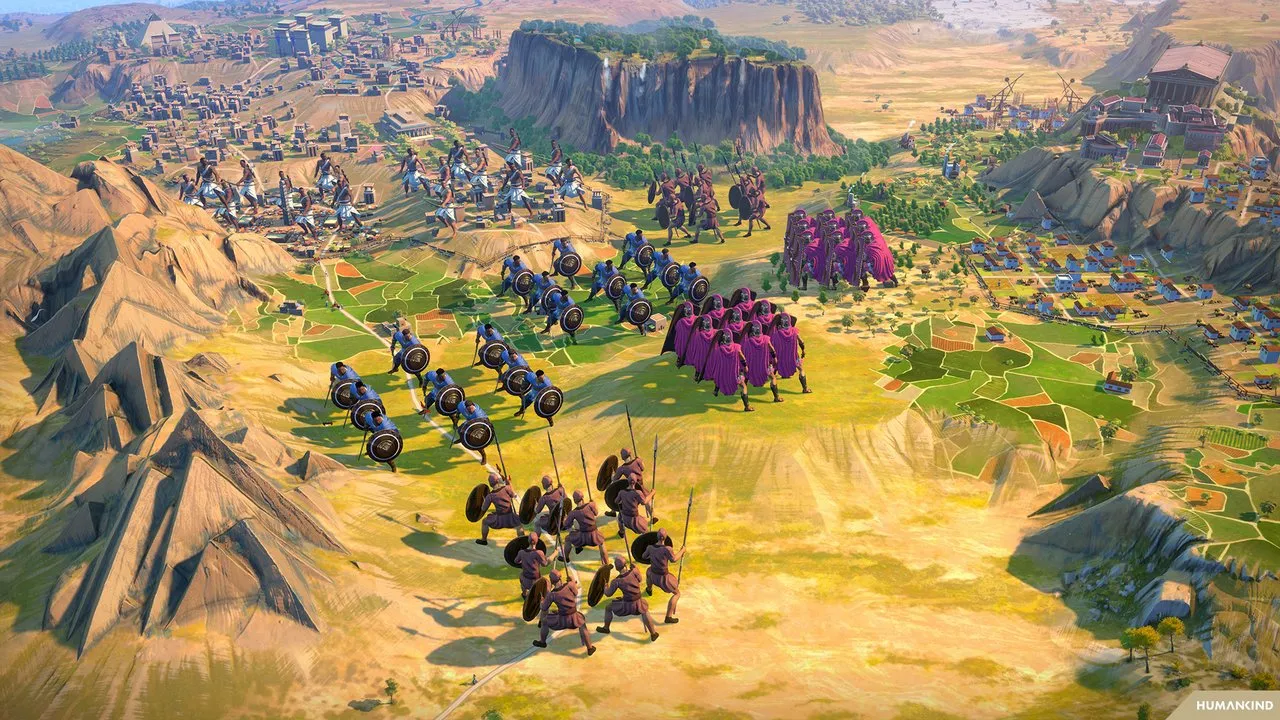 Humankind Gameplay Screenshot highlighting military units on the map
Humankind Gameplay Screenshot highlighting military units on the map
Military strength is paramount in Humankind. Even in the Neolithic era, you need military units for hunting. As you advance, AI opponents become more aggressive, requiring a constant balance between economic development and military buildup.
Terrain plays a significant role in combat. Units on higher ground have an advantage, forests offer concealment and increased evasion, and rivers slow enemy advances. Strategically placing cities near these natural features bolsters both defense and offense.
This emphasis on military strategy makes Humankind more engaging than many other 4X titles. You’re not passively developing your civilization; you’re actively building and deploying armies, engaging in tactical combat, and vying for dominance.
A Complex Interface and Repetitive Strategies
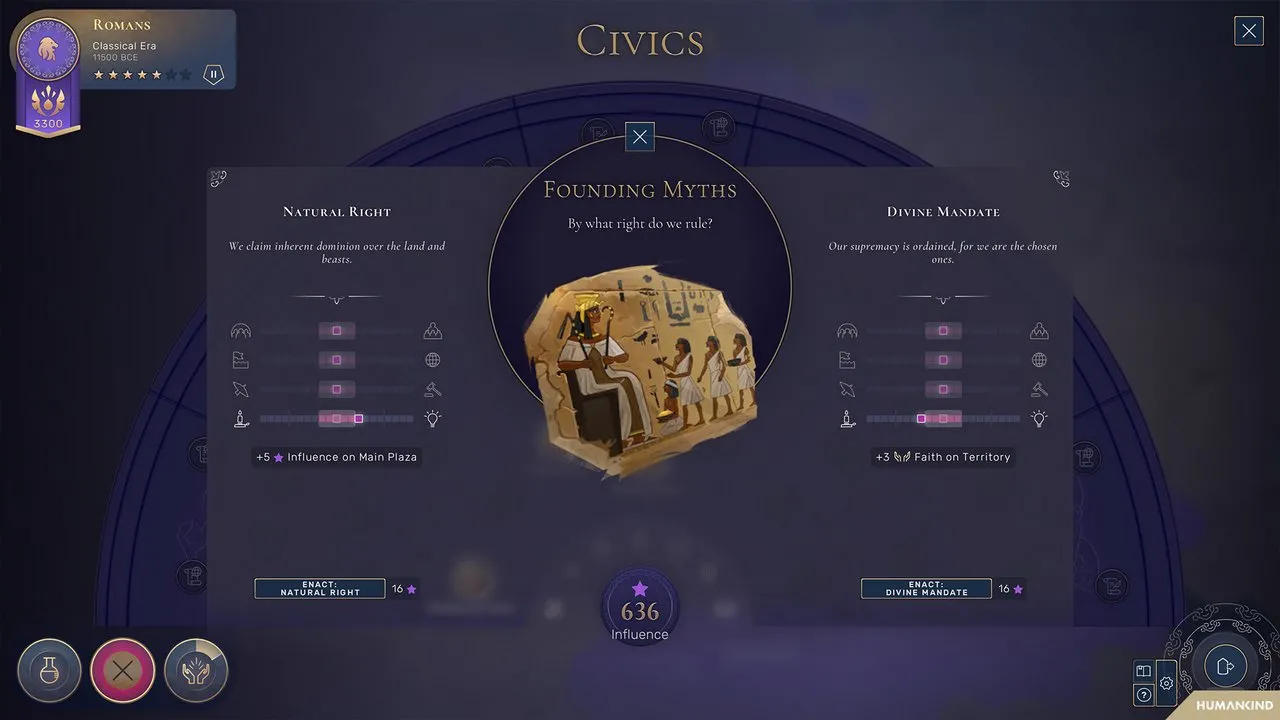 Humankind Gameplay Screenshot showing the user interface
Humankind Gameplay Screenshot showing the user interface
Humankind presents a steep learning curve, especially for newcomers to the 4X genre. Even seasoned veterans might find the user interface cumbersome. The sheer volume of information, coupled with a somewhat unintuitive UI, can be overwhelming. Navigating through tech trees or understanding building functionalities can be frustrating.
The fast-paced gameplay and information overload can be disorienting. You might be engrossed in researching a new technology when suddenly a unit is lost to enemy attack or a resource node is pillaged. The developers even released several YouTube videos to explain various game mechanics, highlighting the complexity of the systems.
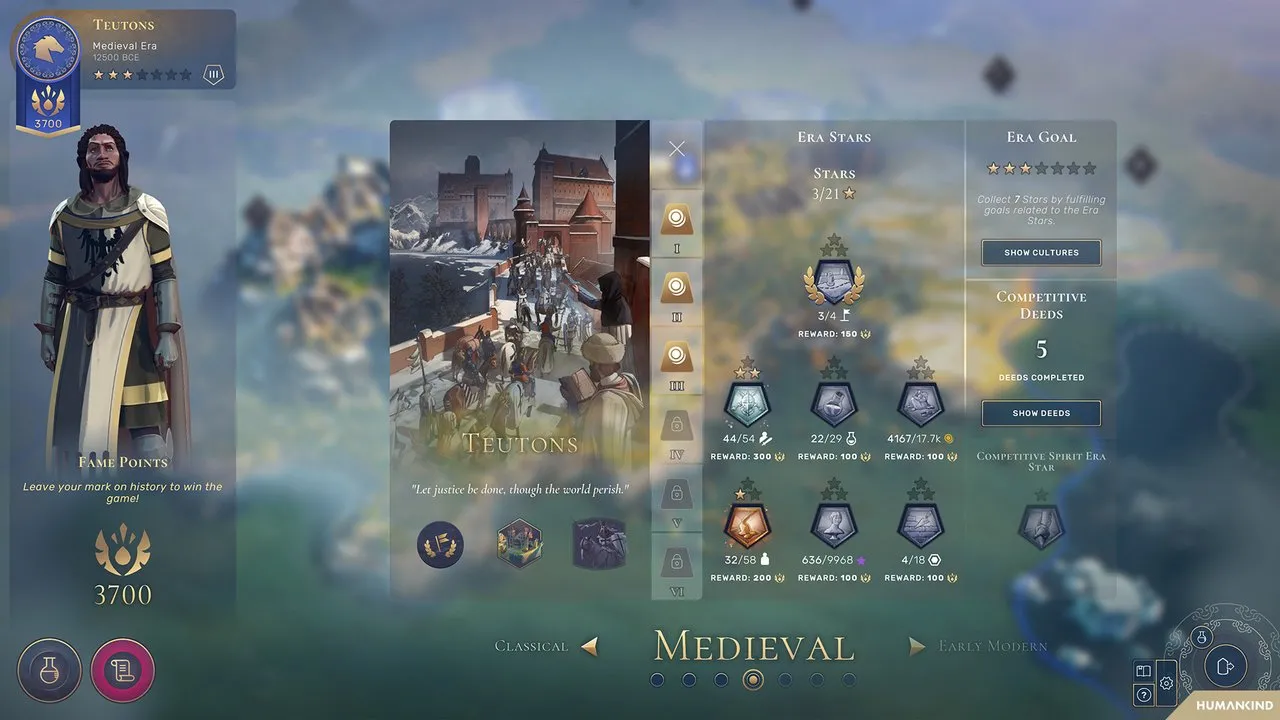 Humankind Gameplay Screenshot displaying different units in combat
Humankind Gameplay Screenshot displaying different units in combat
While the freedom to choose different cultures in each era is a compelling feature, it can lead to repetitive strategies. Once players discover the most powerful civilizations and unit types, the strategic options narrow. Seeing everyone choose Egypt in the Ancient era for its production bonuses or the Huns for their military strength in multiplayer matches becomes commonplace.
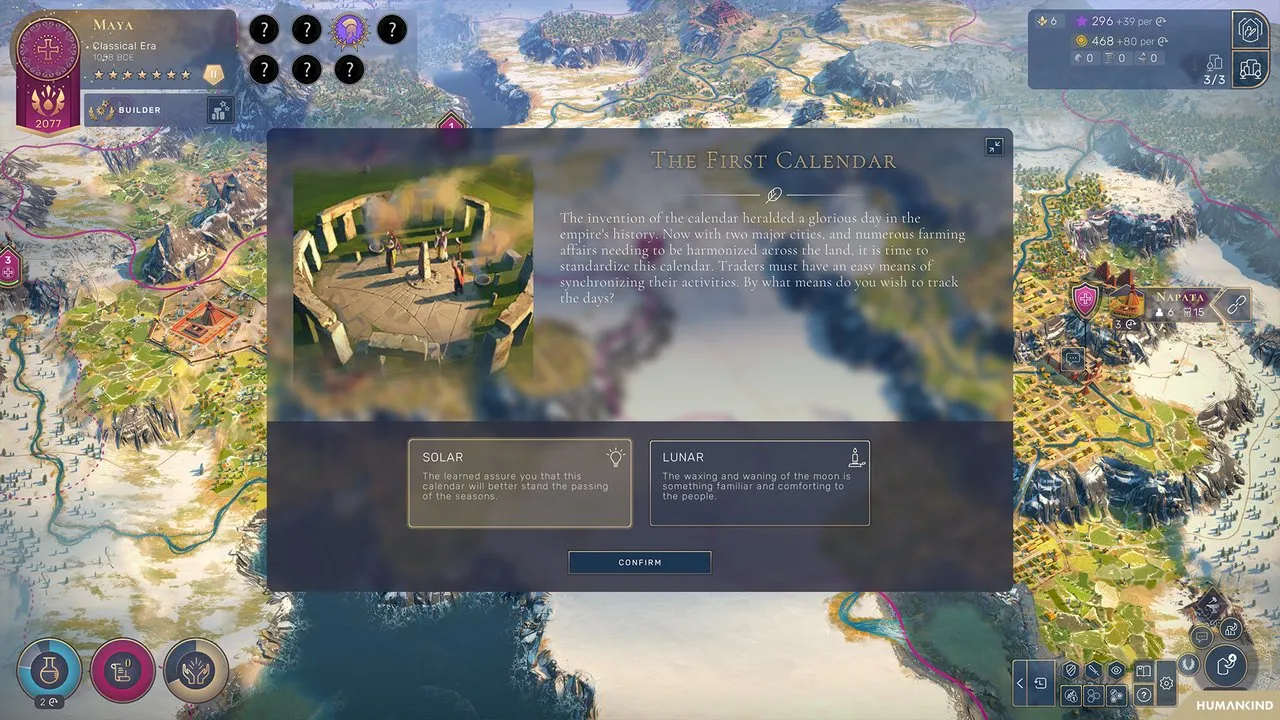 Humankind Gameplay Screenshot showing the game map
Humankind Gameplay Screenshot showing the game map
Despite the varied map generation and resource distribution, optimal winning strategies become predictable. This lack of strategic diversity can detract from the game’s long-term replayability. Hopefully, future updates will address this issue and add more depth to the strategic layer.
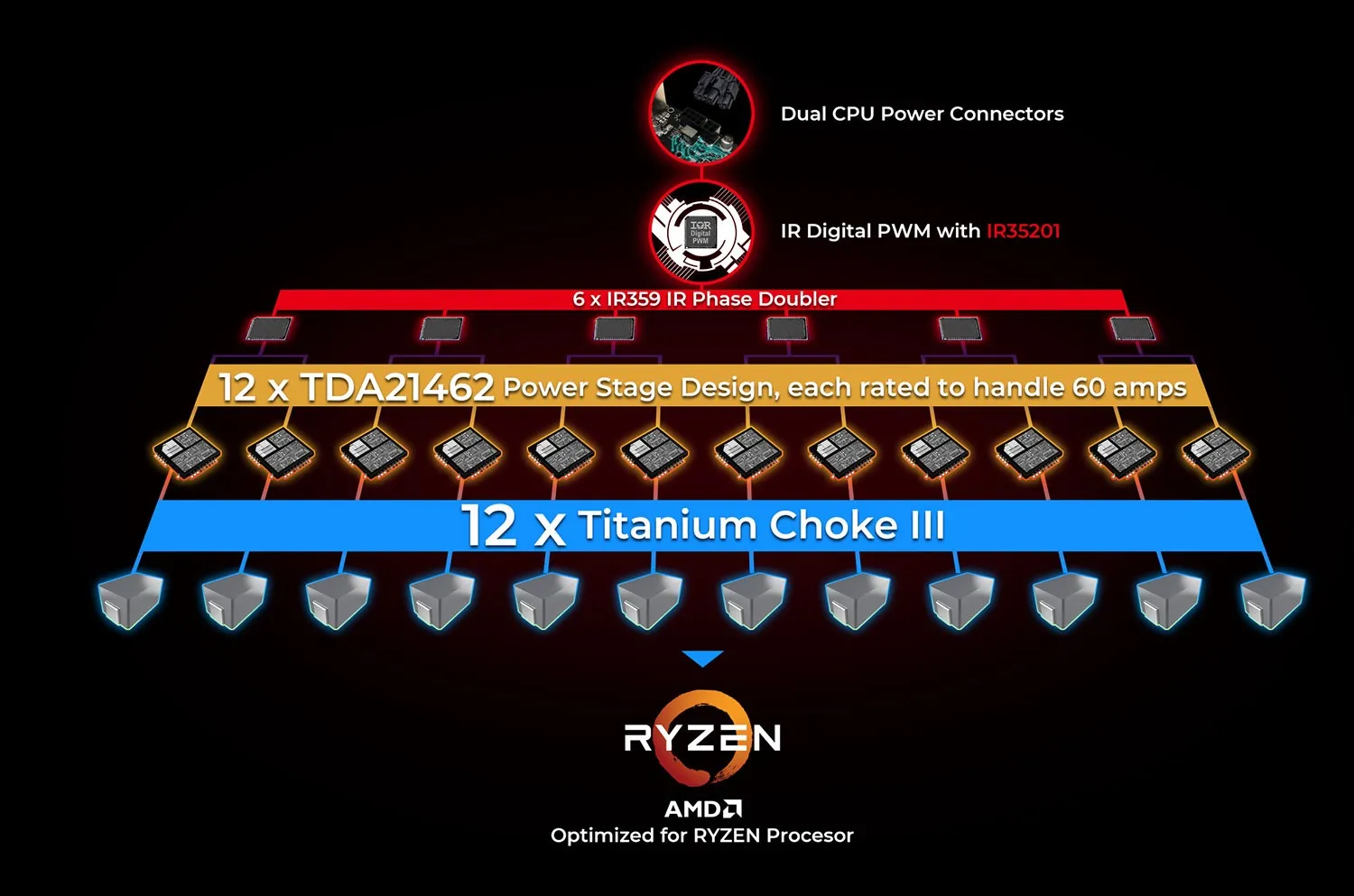


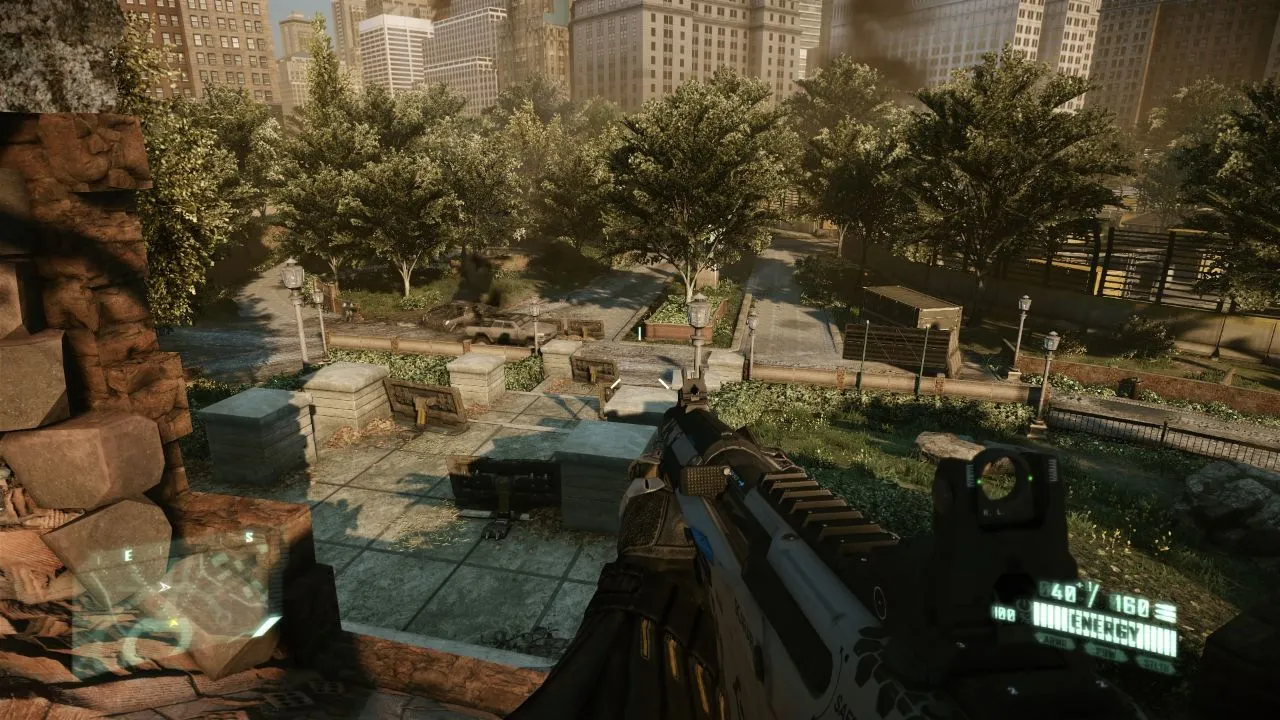

Comments (0)